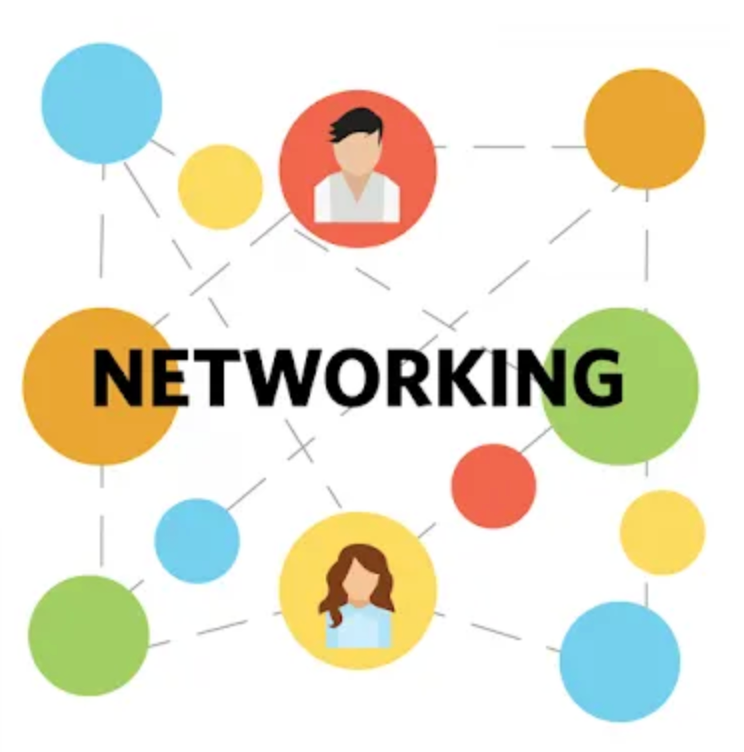
Ready to get more customers calling?
Take FREE Local SEO Course
Available now in English
Networking - is the process of building professional and business relationships. It can take place both online and offline, for example through participation in industry events, conferences, workshops, networking meetings, social media and discussion groups. It’s a key part of career development that can lead to new opportunities, collaborations, knowledge acquisition and enhanced brand visibility.

How does Networking work?
Networking is building professional network connections that can be mutually beneficial in different areas of activity, such as career, business, or personal development. The process involves networking meetings and interactions with people in your industry or related fields, sharing knowledge, experiences, and resources, and supporting each other in achieving professional goals. Networking can be done by attending industry events, conferences, seminars, and business meetings, as well as virtually through social and professional platforms. It is a strategic activity that builds long-term relationships and opens the door to new opportunities for growth and collaboration.
Advantages of Networking in Online Marketing
Advantages of Networking in Internet Marketing:
- Expand your reach: Networking allows you to reach new audiences, build relationships, and boost brand awareness online.
- Knowledge sharing: This allows you to share experiences and knowledge with professionals from different industries, which can contribute to a better understanding of the market and trends.
- New partnerships Can lead to positive business relationships supporting mutual growth and online promotion.
- Acquiring leads: Networking often generates new business contacts that can become valuable leads.
- Improving SEO: Building relationships with other sites and blogs can gain valuable backlinks that enhance search engine positioning.
- Increased trust: Personal relationships built through networking can increase brand trust and credibility online.
- Inspiration and innovation: Contact with other entrepreneurs and marketers can inspire innovative marketing solutions.
- Support and recommendations: Networking can bring valuable suggestions and feedback in building a reputation.
Networking - how to get started?
To start networking:
- Identify your goals: Think about what you want to achieve through networking - gaining new clients, business partners, or sharing knowledge.
- Attend events: Join industry events, conferences, workshops, and networking meetings, both locally and online.
- Build an online presence: Participate in industry groups on different social media platforms.
- Be prepared: Prepare a brief self-presentation and materials you can share with new contacts.
- Be open and helpful: Approach networking with a willingness to help others, not just with the expectation of benefits for yourself.
- Follow up on conversations: Follow up after events by sending messages of thanks or suggesting further meetings.
- Act regularly: Networking takes time and regularity, so be consistent.
Types of Networking
Several types of networking protocols can be used in different professional and business contexts:
- In-person networking : Face-to-face meetings and conversations, such as at conferences, industry events, or local business meetings.
- Online networking: Building business networks via social media, industry forums, and platforms such as LinkedIn.
- Internal networking: Establishing professional contacts with colleagues and different departments within one’s organization.
- External networking: Expanding your local area networks beyond your own company with customers, suppliers, and business partners.
- Social Networking: Participating in community activities, volunteers, or clubs can lead to valuable professional relationships.
- Professional Networking: Membership in professional organizations, associations, and interest groups that offer unique networking opportunity.
- Strategic Networking: Intentionally maintaining positive relationships with individuals and organizations that can impact career or business development.
Why is Networking important?
Networking is vital because it allows you to build professional relationships that can bring many benefits, such as sharing knowledge and experience, accessing new business opportunities, gaining recommendations, increasing your visibility in the industry, and personal and professional growth. Effective networking can be a transmission medium to new projects, collaborations, and clients and contribute to career success and business growth.
![What is Networking - Definition [Marketing Dictionary]](/assets/img/dictionary-background.webp)
